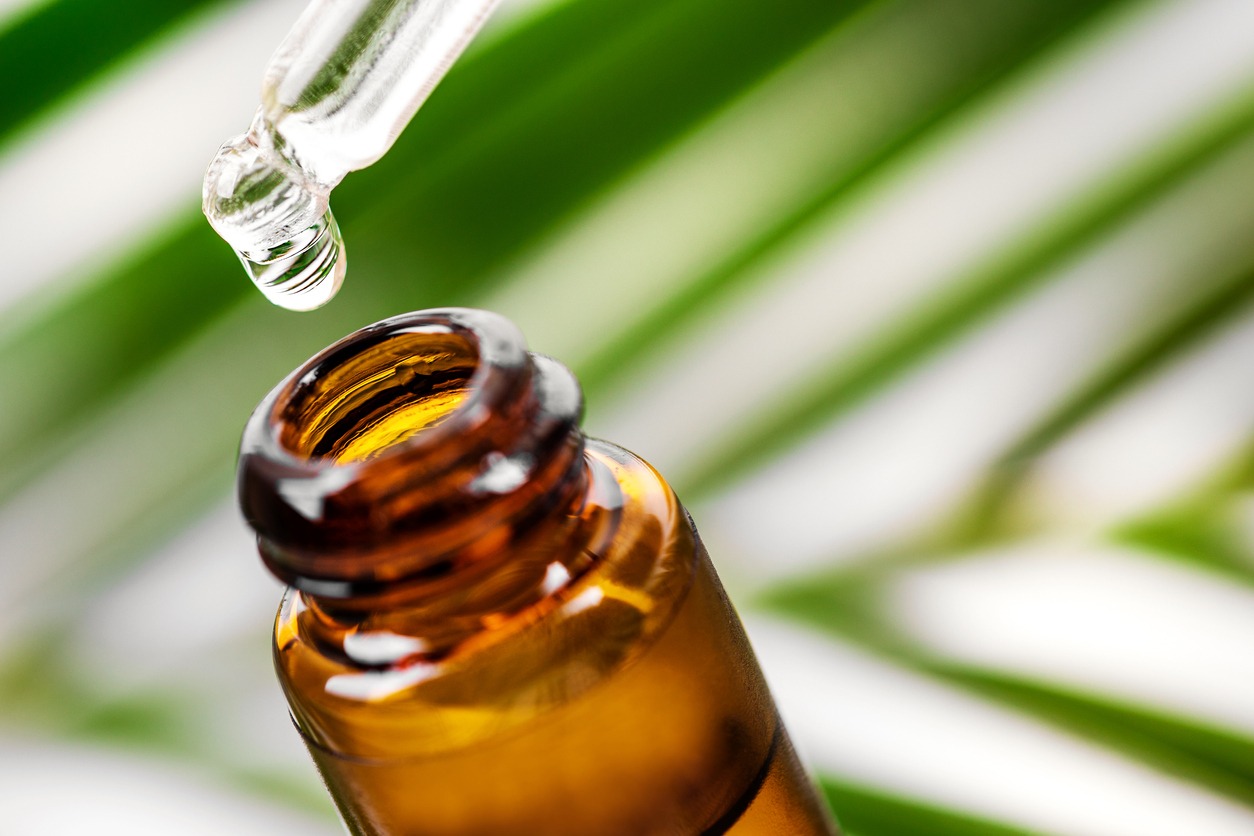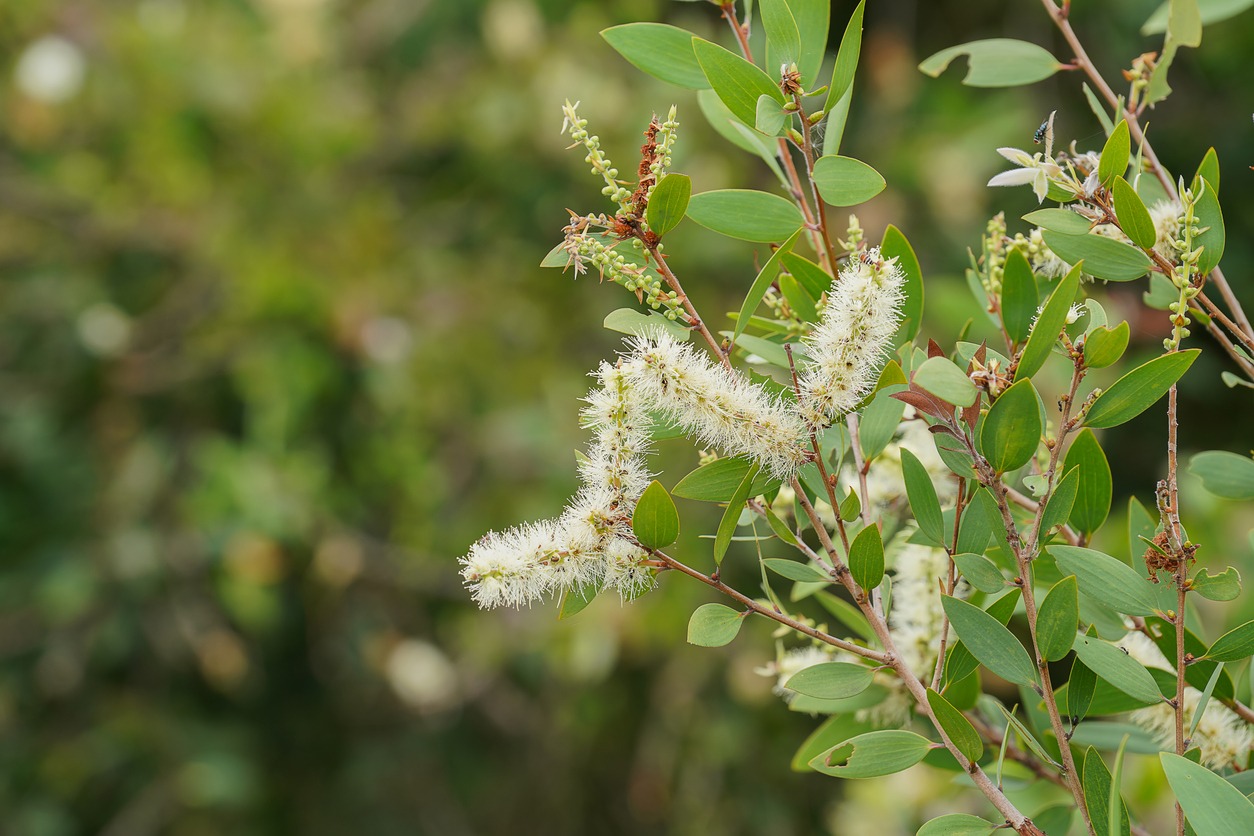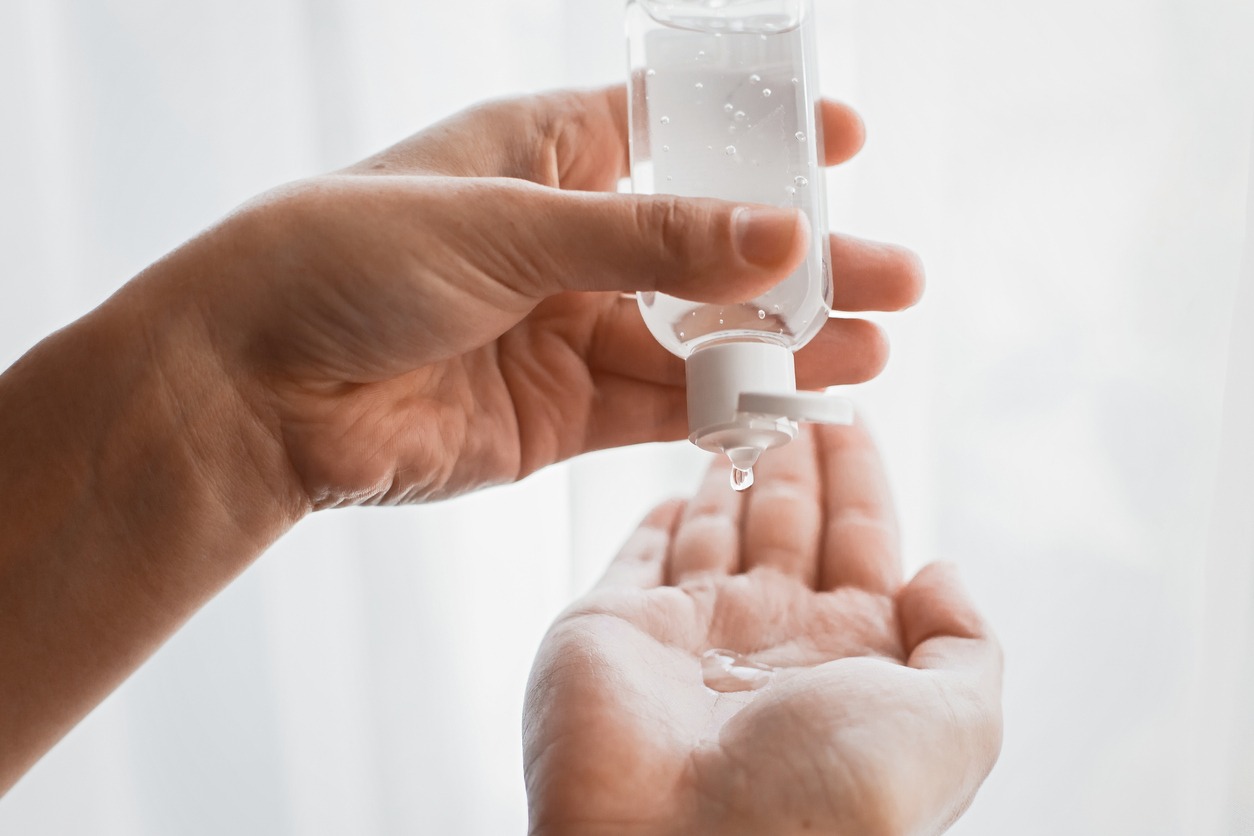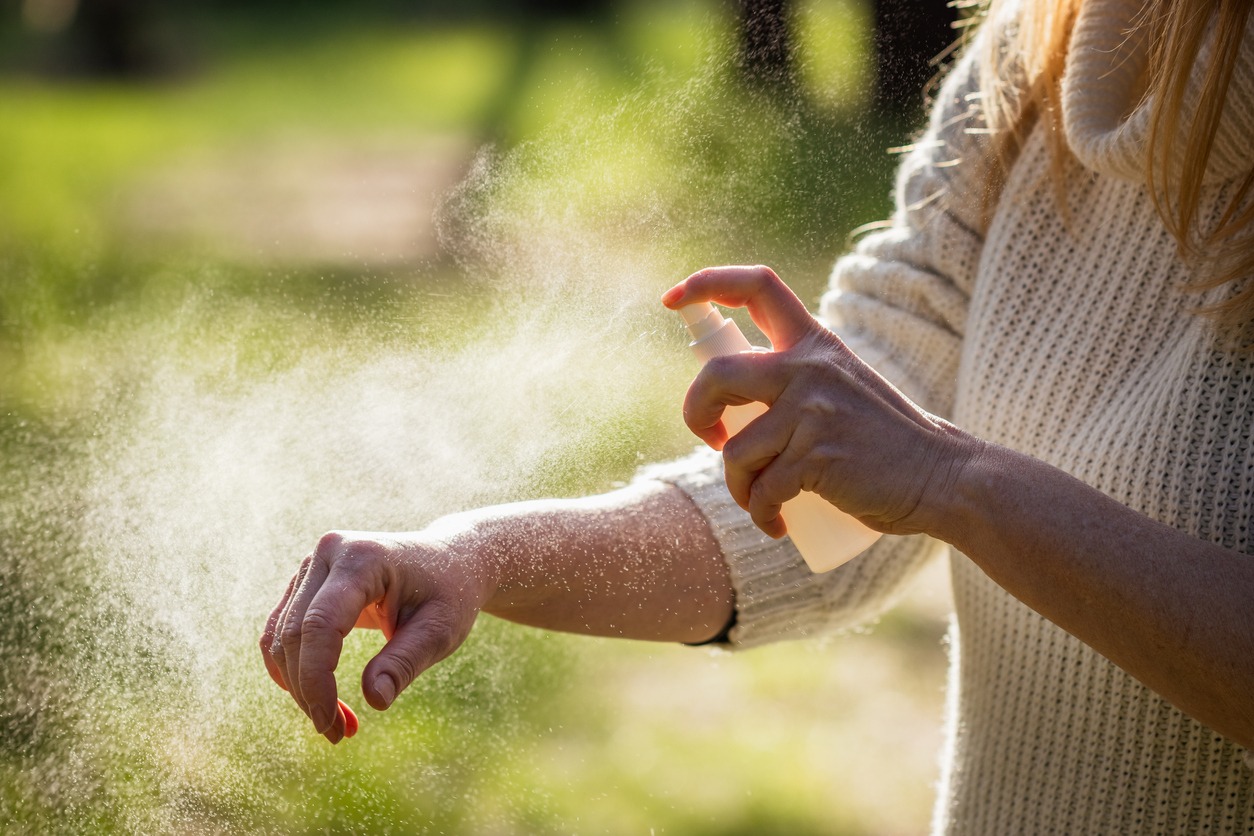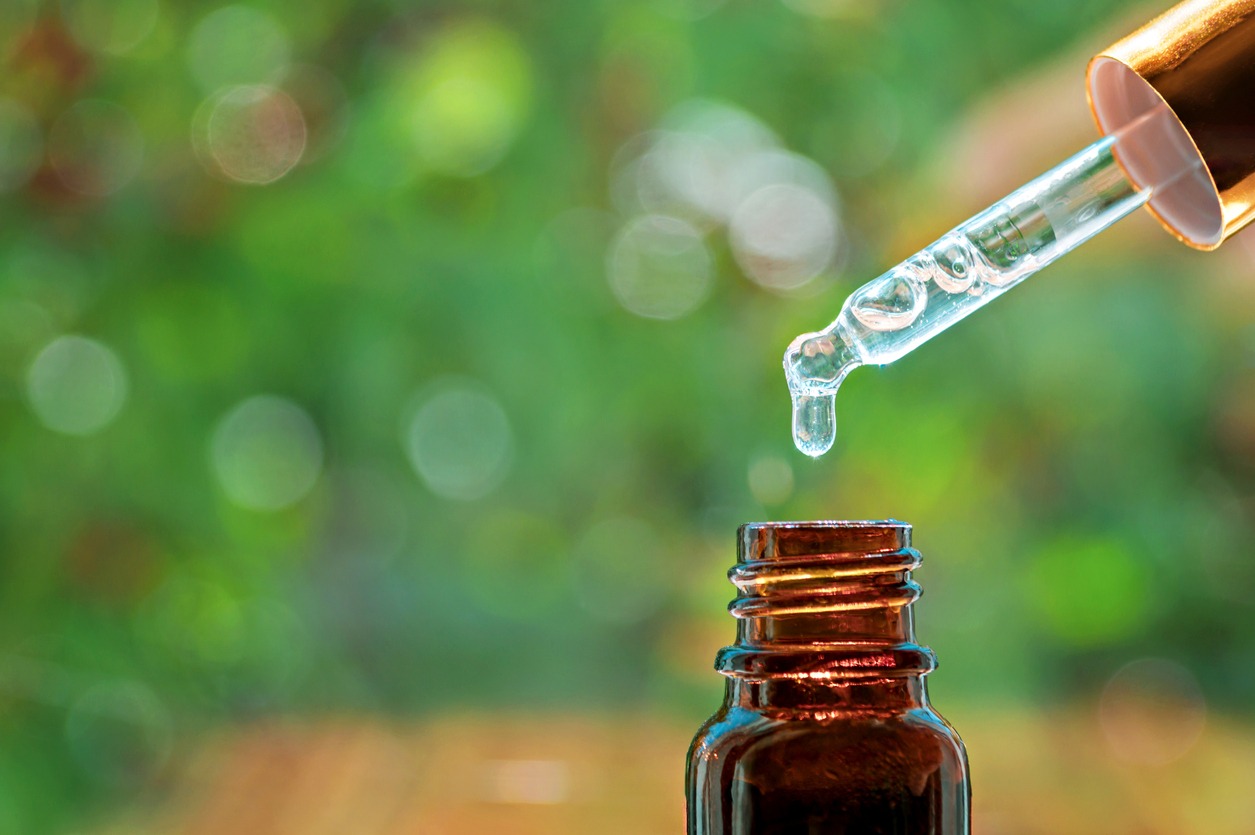The tea tree plant is the source of the essential oil known as tea tree oil. It has outstanding antibacterial as well as antifungal properties and is thus considered good for treating dandruff, insect bites, nail fungus, and much more. It has also been used for centuries as an antiseptic for cuts or burns because the chemicals it contains may kill bacteria and fungi. It can also reduce allergic skin reactions, meaning it is safe to be used even by those who have sensitive skin.
The most common and most known use of this essential oil is for skincare purposes. This essential oil is highly recommended for people with oily skin. It is one of the most popular oils for treating skin issues like acne and acne scars, as it kills the bacteria that cause acne.
Tea tree oil is a natural medicine, so get yourself tea tree oil if you are a victim of acne and have dry skin issues. But in addition to these, there are a lot more benefits that you can get from using tea tree oil. If you are curious about what these are, you’re in the right place. In this post, we are giving you the top benefits of tea tree oil along with other important information you need to learn about tea tree essential oil.
The Different Uses of Tea Tree Oil
Before we talk about the benefits that you can get from using tea tree oil, let us first learn about its different uses. Tea tree oil has several uses, and below are some of them:
Hand Sanitizer
Tea tree oil is an excellent all-natural hand sanitizer. Numerous common bacteria and viruses that cause illness, including E, have been shown to be killed by it, according to studies. coli, S. H. pneumoniae and influenzae. In fact, a study comparing several handwashing methods found that including tea tree oil in the cleansers increased their potency against E. coli.
Studies keep showing that tea tree oil-based hand sanitizers are efficient in disinfecting hands and killing bacteria without the use of antibiotics. As a result, applying tea tree oil as a natural hand sanitizer may aid in eradicating a variety of germs that cause colds, the flu, and other ailments.[1]
Insect Repellent
Tea tree oil might be able to deter bothersome insects. According to one study, cows treated with tea tree oil had 61% fewer flies 24 hours later than cows that weren’t treated. Tea tree oil is utilized in agriculture to prevent ants from consuming products. Additionally, it works well as a mosquito repellent. In fact, in a test-tube investigation, tea tree oil outperformed the most widely used active ingredient in commercial insect repellents, DEET, at deterring mosquitoes.[1]
Natural Deodorant
The antimicrobial properties of tea tree oil may aid in reducing sweat-related underarm odor. Sweat doesn’t smell by itself. However, a moderate to strong odor is formed when germs on your skin and secretions from your sweat glands interact. These glands are highly concentrated in your underarm region, where they are primarily accountable for the odor that is known as body odor. Due to its ability to kill microorganisms, tea tree oil is a fantastic all-natural deodorant and antiperspirant substitute.[1]
Antiseptic for Minor Cuts and Scrapes
When skin is broken due to an injury, it is simple for microorganisms to enter the bloodstream, which can cause an infection. Tea tree oil works by treating and disinfecting minor cuts and abrasions. It also kills bacteria like S. aureus and others that can infect open wounds.[1]
Anti-Acne
In the fight against acne, tea tree oil can be a potent tool. Numerous studies have demonstrated that it lessens the prevalence and overall severity of acne. Some cases of acne are brought on by bacteria that are increasingly hard to treat with conventional medications. According to research on tea tree oil, after 4 to 6 hours of treatment, germs were killed in the lab as well as having their activity repressed.
Acne gels made with tea tree oil can be bought online or at natural grocery stores. You can also make your own acne treatment by combining one part tea tree oil with nine parts water, then using a cotton swab to apply the solution to the affected areas once or twice a day, as needed.[1]
Mouthwash
Tea tree oil may be able to combat the bacteria that cause bad breath and tooth decay, according to research. According to one study, tea tree oil outperformed the widely used dental rinse and disinfectant chlorhexidine in terms of fighting plaque-causing microorganisms. Additionally, its flavor was discovered to be less unpleasant. A 2020 study discovered that tea tree oil mouthwash was a successful treatment for lessening gingivitis inflammation.
Simply combine a drop of tea tree oil with a cup of warm water, stir well, and swish about for about 30 seconds to create your own chemical-free mouthwash. Tea tree oil should not be consumed, just like other mouthwashes. If consumed, it might be toxic.[1]
All-Purpose Cleaner
Tea tree oil works well as an all-purpose cleanser and surface sanitizer. Additionally, it does it without leaving any chemicals behind that you wouldn’t want your family or pets to come into.[1]
Benefits of Using Tea Tree Oil
Tea tree oil is derived from an indigenous plant in Australia called melaleuca, and it is popular for its powerful antiseptic and antibacterial properties. If you are curious about the benefits that you can get from using tea tree oil, below are some of them:
Promotes Glowing Skin
The finest oil to use for skin advantages is tea tree oil. It gives your skin a beautiful, glowing appearance and is highly good for your skin. Its abundance of antioxidants aids in smoothing and reducing dryness in the skin.[2]
Gets Rid of Acne
Tea tree oil’s anti-inflammatory and anti-microbial qualities make it a powerful acne treatment. According to research, it is just as effective as benzoyl peroxide. It is supposed to reduce inflammation, edema, and redness. In order to eliminate toxins and avoid blockage, it enters the pores. Additionally, it lessens and lightens scars. The skin’s natural oil balance is restored with tea tree oil. Even though tea tree oil takes time to work, 45 days of continuous use can do wonders for your skin. For effective results, apply a gel containing tea tree oil.[2]
Prevents Skin Infections
Tea tree oil’s anti-inflammatory and anti-microbial qualities aid in the healing of infections. All skin infections, including psoriasis, herpes, and athlete’s foot, respond quite well to it. Additionally, it aids in reducing inflammation and skin irritability. After combining a few drops of tea tree oil with a moisturizer or olive oil, apply the mixture to the concerned area.[2]
Prevents Dandruff and Lice
Tea tree oil has antibacterial qualities that help to get rid of lice, white flakes, and dead skin on the scalp, in addition to dandruff. Additionally, it serves as a cleanser and conditioner that treats lice and soothes dry scalp. Apply a few drops of tea tree oil diluted in coconut oil or almond oil on your hair every day for the greatest effects.[2]
Treats Nail Fungal Infection
Fungal infections of the nails are frequent yet challenging to treat. Use tea tree oil alone or in conjunction with other all-natural therapies to get rid of nail fungus. Apply a few drops of tea tree oil directly to the afflicted region or combine it with equal amounts of coconut oil.[2]
Beneficial for Respiratory Issues
Tea tree oil is a good remedy for respiratory issues because it has several anti-inflammatory qualities. It is a strong expectorant and aids in removing mucus obstructions in the nose and throat. In addition, it works well for conditions including bronchitis, asthma, and tuberculosis.[2]
Promotes Oral Health
According to research, tea tree oil combats the bacteria that lead to oral inflammation and disorders, including tooth decay and foul breath. You can use tea tree oil as a chemical-free mouthwash by mixing one drop with half a cup of water and gargling for 30 seconds.[2]
Essential Things to Know Before Using Tea Tree Oil
There is a crucial fact you should be aware of prior to going out and purchasing a bottle of tea tree oil and using it: tea tree oil should not be consumed.
Keep in mind that tea tree oil is only effective when used topically. And keep in mind that everyone’s skin is obviously different, even though it can be used on sensitive skin. Some people are able to apply it directly to their skin without any problems, while others might need to combine it with a carrier oil like jojoba or macadamia nut oil.
Best Tips When Buying Tea Tree Oil
You won’t find tea tree oils on the market that are all created equal. Therefore, it is best to select one that offers the cleanest and highest-quality ingredients. Below are some of the best tips when buying tea tree oil:
Choose a Tea Tree Oil with a High Percentage of Terpinen-4-ol
Cineole and terpinen-4-ol are frequently found in tea tree oils. The organic antibacterial included in tea tree oils is terpinen-4-ol. Contrarily, the primary component of eucalyptus oil, cineole, is a naturally occurring organic substance more commonly referred to as eucalyptol. Choose a tea tree oil with a higher percentage of terpinen-4-ol and a lower concentration of cineole if you want superior-grade tea tree oil.
Choose tea tree oils with terpinen-4-ol concentrations between 30 and 40 percent and cineole concentrations of less than 7 percent. Additionally, keep in mind that not everyone can handle higher concentration levels. Before purchasing a higher concentration of tea tree oil, it is preferable to first perform a skin patch test if you frequently experience allergic responses to essential oils.
Pick a Tea Tree Oil Placed in a Dark Glass Bottle
Just like beer, tea tree oil needs to be kept in a dark bottle to maintain its effectiveness and potency. Terpinen-4-ol, like many other essential oils, quickly oxidizes when exposed to light, which can result in a decline in the quality of tea tree oil. In addition, the amount of para-cymene, a hydrocarbon that is known to irritate the skin, can rise when it is exposed to light. With this, once you’ve bought tea tree oil, be sure to keep the container somewhere away from moisture, severe heat, and light.
Always Read the Label and Do Some Research
Read the label to ascertain the oil’s purity while comparing various tea tree oil brands. To determine the concentration levels, look at the ingredients because diluted forms will lessen the oil’s effectiveness. Additionally, you should choose whether or not you wish to buy 100% organic oils. Keep in mind that terpinen-4-ol content and purity tend to be higher in organic versions.
And finally, it’s crucial to conduct research before purchasing a bottle of tea tree oil. View ratings and reviews for various brands. These will help and guarantee that the item you buy is of high quality. In addition, they will assist you in locating a trustworthy seller, which will raise the chances of having a positive shopping experience.
Conclusion
There are several applications for tea tree essential oil. It is a great substitute for cleaning agents, skin care products, and other items that include chemicals. You must, however, keep in mind that it is not a miracle cure-all. After applying it to the skin, some people might even feel skin irritability or an allergic reaction. As a result, never use it on delicate skin without first consulting a dermatologist. We hope the information we shared in this post helped you learn more about the benefits and uses of tea tree oil.
References
[1] The Healthline Editorial Team. (2022, February 7). 14 benefits and uses for tea tree oil. Healthline. Retrieved December 7, 2022, from https://www.healthline.com/nutrition/tea-tree-oil#1.-Hand-sanitizer
[2] Parmar, R. (2022, May 4). 10 amazing benefits of Tea Tree Oil. PharmEasy Blog. Retrieved December 7, 2022, from https://pharmeasy.in/blog/10-amazing-benefits-of-tea-tree-oil/#1_Promotes_glowing_skin

